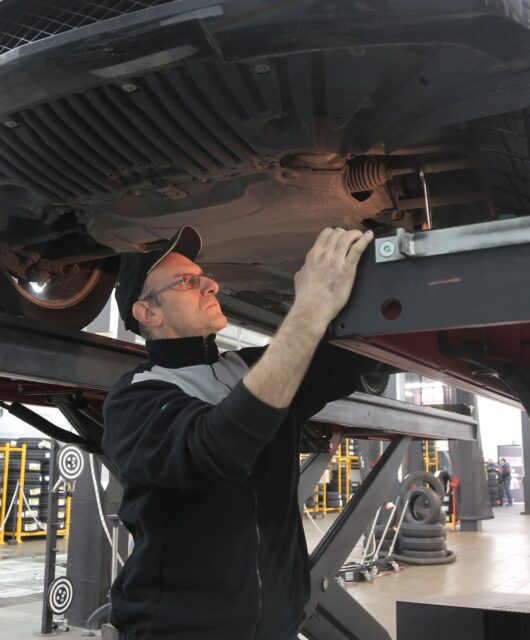Driving Safely and Efficiently: The Benefits of Preventive Vehicle Care
 Key Takeaways:
Key Takeaways:
- Regular vehicle maintenance helps extend the lifespan of your car.
- Following a maintenance schedule can improve fuel efficiency.
- Well-maintained vehicles have higher resale values.
- Maintenance can prevent major, costly repairs.
Table of Contents
Why Vehicle Maintenance Matters
Maintaining your vehicle isn’t just about keeping it clean, as it’s also about ensuring it runs smoothly for years. Regular check-ups can prevent unexpected breakdowns and extend your car’s lifespan. Whether you have a new or used vehicle, keeping up with maintenance is crucial. Car dealerships in Lakeland, FL emphasize this, as adhering to a strict maintenance schedule ensures optimal performance. Regular inspections and servicing are essential for proper maintenance of vehicles, ensuring all components are in good working order and reducing the risk of unexpected breakdowns, resulting in reduced repair costs.
How to Develop a Maintenance Schedule
Creating a car maintenance schedule doesn’t have to be complicated. Start by consulting your vehicle’s owner’s manual, which usually outlines the recommended services. Typical services include oil changes, tire rotations, and brake inspections. The owner’s handbook like new cars for sale Tampa, which is particular to your type of automobile and comes straight from the manufacturer, is a handy tool. Utilizing this information helps you adhere to the optimal maintenance intervals suggested by experts, which, in turn, maximizes your vehicle’s efficiency and longevity.
Critical Components of Regular Maintenance
Oil Changes
Engine health depends on regular oil changes. Oil deteriorates over time and loses its ability to lubricate engine parts. Frequent oil changes help keep your engine operating smoothly and save on expensive repairs. Clean oil reduces friction and wear, keeping the engine parts moving efficiently. Neglecting oil changes can lead to sludge build-up, clogging the engine, resulting in diminished performance and increased fuel consumption. The cost of regular oil changes is minimal compared to the expense of significant engine repairs or replacements resulting from neglecting this essential service.
Tire Care
The tires are your vehicle’s direct contact with the road. You may increase fuel efficiency and longevity with routine tire rotations, alignments, and pressure checks. Ignoring tire care can result in blowouts and uneven wear. Rotating your tires contributes to uniform tread wear, which increases handling and traction. Proper wheel alignment prevents your car from drifting to one side, reducing tire wear and improving fuel economy. Keeping the appropriate air pressure in your tires extends their lifespan and enhances fuel efficiency and handling performance.
Brake Inspections
Brakes are crucial for safety and performance. Regular inspections can help identify wear and tear before it becomes a significant issue. Brake pads, rotors, and fluid should all be checked and replaced as needed. Worn-out brakes can significantly increase your stopping distance, putting you and other road users at risk. Regular brake inspections help you catch issues early so that you can replace brake pads before they wear out completely. By taking preventative measures, you may avoid more expensive repairs like caliper or rotor damage brought on by improper brake maintenance.
Fluid Checks
Ensuring your vehicle’s fluids (coolant, brake, and transmission fluid) are optimal is essential. Keeping fluids at the proper levels helps avoid overheating and ensures your car runs smoothly. Coolant prevents your engine from overheating, especially during extreme weather conditions. Brake fluid is vital for proper brake function, and low levels can lead to brake failure. Transmission fluid lubricates and cools the transmission, ensuring smooth gear shifts. Regularly checking and topping off these fluids helps prevent little problems from growing into more significant, costly fixes.
Cost Benefits of Routine Maintenance
Regular maintenance saves you a ton of money over time. Minor repairs and check-ups cost less than significant fixes for neglected issues. Keeping your car in shape also means increased fuel economy, which results in lower gas costs. By using preventative maintenance, possible problems may be found before they worsen and become more expensive. For example, replacing worn brake pads is much cheaper than replacing damaged rotors or brake lines. Maintaining your car’s performance also ensures optimal fuel consumption, reducing the amount you spend on gas.









